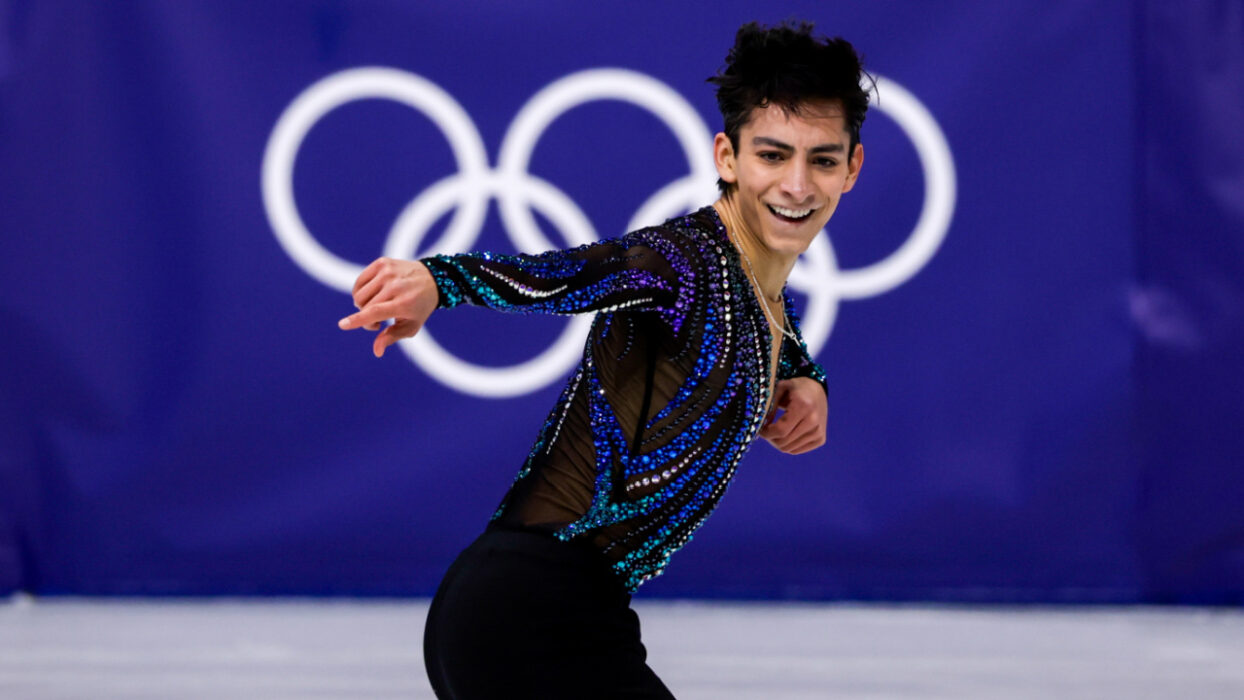
Remember When Rita Moreno Became the First Latina To Win an Oscar and Gave the OG ‘I Want To Thank Me’ Speech?
There’s no doubt in anyone’s minds that Rita Moreno is a global icon: at the age of 90 years old, the Humacao, Puerto Rico-born actress, dancer, and singer has done it all.
For one, she is an EGOT winner, meaning she has won an Emmy, Grammy, Oscar, and Tony award, and she has starred in countless legendary films like “The King and I,” “The Night of the Following Day” alongside Marlon Brando, and of course, her breakout role as Anita in 1961’s “West Side Story.”
But Moreno didn’t always have it so easy coming up in Hollywood in the 1950s and 60s.
Moreno has often spoken out about the difficulties she faced encountering both racism and sexism as a rising Hollywood star in the mid-century, most notably in the PBS documentary “Just a Girl Who Decided to Go for It.” The actress explained she never saw Latina representation on screen as a young child, saying, “there was no such thing then… certainly not for little Puerto Rican girls like me.”
Moreno moved to New York City as a child, and eventually moved to Hollywood as a teenager, where she signed a contract with MGM Studios. While that might have seemed like a dream come true, Moreno was offered stereotypical roles that were many times overtly sexualized.
Constantly eroticized, Moreno is known to have acted in roles outside of her ethnicity, including of Hawaiian, Native American, Egyptian, and Filipino characters — an aspect of her career that is often rightly criticized. About the roles, she described: “they all called for an accent or two that I wasn’t even familiar with. So I made up my own accents… they all sounded Puerto Rican.”
Still, Moreno was just a young Latina trying to nab roles in an environment where no one else looked like her — and probably felt fortunate to be acting in those films at all.
Moreno also described the carelessness of Hollywood studios towards authentically depicting people from other countries — regarding her sometimes-inaccurate accents, “nobody ever said, ‘What are you doing? What the hell is that?’… nobody cared.”
The actress and singer’s dream was to be just like Elizabeth Taylor — but as she explains in the documentary, “little did I know there wasn’t a chance in hell of something like that happening,” all because she was Latina. Moreno went on to say, “I spoke perfect English. And it absolutely rankled that I had to do accents. And it rankled that I always had to do the dark makeup… they only saw Hispanic young women as a certain color.”
While many are dismayed at Moreno’s darkened appearance playing Anita in “West Side Story,” she explained, “I remember saying to a makeup man once, ‘I don’t know why I have to be this color. … This is not my color.’ And he actually said to me… ‘What are you, racist?’”
Still, there’s no denying Moreno’s role as Puerto Rican, singing powerhouse Anita in “West Side Story” put her on the map, leading to her Oscar win in 1962.
That being said, her acceptance speech shocked many people — and for good reason. Telling the New York Times she “didn’t expect to win,” she first thought not to run upstage since “it’s not dignified,” and made the decision not to thank anyone. She said, “I remember thinking very clearly, ‘do not thank anyone’… they didn’t give you the part as a favor. They were forced to give it to you because you did the best screen test.”
Her seven-second speech simply stated: “I can’t believe it! Good Lord! I leave you with that.”
Moreno explained, “I ran out of anything to say once I decided I wasn’t going to say thank you… and I’ve been trying to make up for it with long acceptance speeches ever since.” Her decision not to thank anyone makes sense for a fiercely independent Latina who defied all odds becoming a cinema star when us Latinos weren’t even given a second glance — and her speech is the self-love motivation we needed today.
Shockingly enough, Moreno’s Oscar win did not mean she suddenly had it easy in Hollywood — in fact, her role as Anita led to even more typecasting in her career. Looking back, she described, “my agent said, ‘You’re Anita — [a producer] just wouldn’t see you’… because it wasn’t a part that was Latina… that really broke my heart.” She continued, “all the Latina roles in films were so perfunctory. And I said, ‘I’m not going to do that stuff anymore with the accents.’”
Apart from racism, the legendary actress also faced sexism in many different aspects of her life. Starting out as an actress, she has talked about being “treated like a sex object,” describing terrifying situations like: “the studio had asked contract players to go out on pretend dates. Before I know it, he’s forcing himself on me. When you’re in contract to a studio, they own you.”
Even more, while Moreno’s relationship with Marlon Brando and her brief period dating Elvis Presley seem like major goals, her rollercoaster pairing with Brando was actually emotionally and psychologically abusive. She has explained how the off-and-on, toxic relationship almost led to her suicide, calling Brando “a womanizer,” and has said therapy was the ”biggest favor” she did for herself.
Today, Moreno continues to be a glittering star with no signs of stopping anytime soon — for one, she starred in 2021’s “West Side Story” remake as Valentina, drugstore owner Doc’s widow, and also signed on as executive producer.
The actress will always be a legend to look up to for Latinas everywhere — whether dreaming of Hollywood, medical school, or any other goal in between.




